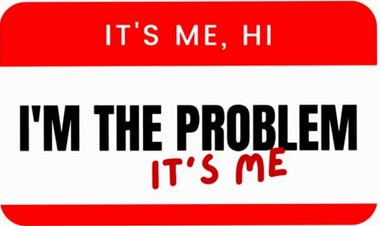Trust is the backbone of any relationship – with individuals such as a spouse/partner, friend or even a financial planner, doctor, or your kid’s teacher or coach. More broadly, trust in institutions such as corporations, small businesses, government or media is essential for society to thrive and function with collective peace of mind.
Trust has been in decline worldwide for some time now. The 2024 Edelman Trust Barometer, an annual global survey in 28 counties including the United States, China, Germany, India, Japan, Saudi Arabia, Brazil, Argentina, Sweden and more – a potpourri of cultures, political systems, religions and economic power – reveals a decrease in trust of corporations, and individual leaders in business, government and the media.
Trust has been in decline worldwide for some time now. The 2024 Edelman Trust Barometer, an annual global survey in 28 counties including the United States, China, Germany, India, Japan, Saudi Arabia, Brazil, Argentina, Sweden and more – a potpourri of cultures, political systems, religions and economic power – reveals a decrease in trust of corporations, and individual leaders in business, government and the media.
When Edelman asked if people “worried” that business leaders, corporations and journalists are “purposely trying to mislead people by saying things they know are false or gross exaggerations,” 64% had concerns about media, 63% about government and 61% about business.
Trust exists only when people embrace esteemed values such as integrity and accountability. The two are interdependent. While it’s easy for any individual or institution to say they have integrity, accountability puts that to the test.
Trust is in decline because accountability is in crisis.
Fewer people have the courage to live by the refrain, “It’s me. Hi. I’m the problem, it’s me,” from Taylor Swift’s “Anti-Hero.” Especially those in leadership positions that have more power to influence and impact people’s lives. And surprisingly, the people whose lives are negatively impacted aren’t holding them accountable for failures in honesty, leadership or even misconduct.
While there are certainly people who are accountable and held accountable in all walks of life, it seems examples like the ones below are becoming more pervasive, contributing the deterioration of trust.
The irony is that accountability can be a powerful elixir to develop trust. Most people understand that being human means sometimes making mistakes or not living up to expectations. However, too many dismiss their responsibility and double down on dishonesty, defensiveness and excuses. Some even point the finger at someone else, not realizing three fingers are pointing back at them.
Simple statements of accountability like the ones below are infinitely more resonant and elicit trust, empathy and even a renewed sense of camaraderie:
“I was wrong.”
“I need to do better.”
“I haven’t lived up to my commitment.
“You deserve better from me.”
People should re-think the value of accountability. To ourselves. To others. And holding others accountable. On a macro level, a global economy and geo-political dynamics have a domino effect. On an individual level, relationships and friendships can teeter on trustworthiness.
With more trust, dominos stand tall. Without it, dominos fall.
Trust exists only when people embrace esteemed values such as integrity and accountability. The two are interdependent. While it’s easy for any individual or institution to say they have integrity, accountability puts that to the test.
Trust is in decline because accountability is in crisis.
Fewer people have the courage to live by the refrain, “It’s me. Hi. I’m the problem, it’s me,” from Taylor Swift’s “Anti-Hero.” Especially those in leadership positions that have more power to influence and impact people’s lives. And surprisingly, the people whose lives are negatively impacted aren’t holding them accountable for failures in honesty, leadership or even misconduct.
While there are certainly people who are accountable and held accountable in all walks of life, it seems examples like the ones below are becoming more pervasive, contributing the deterioration of trust.
- Business – CEO’s and business leaders are routinely given outlandish severance packages for failing to achieve to achieve the goals they set, or even after misconduct. Hewlett-Packard’s Mark Hurd received $35 million when fired. General Electric’s Jeffrey Immelt $211 million. Home Depot’s Bob Nardell’s $210 million. McDonald’s Steve Easterbook $41 million although he later actually had to pay it back. It’s demoralizing for workers to endure more work, pressure, layoffs and decreasing morale because of failures in leadership and then see the CEO leave with millions.
- Government – For all the courage and forward-thinking of the founders of the United States Constitution, they were human. They underestimated the importance of accountability for political leaders, who have the broadest and deepest impact on the everyday lives of citizenry. Immunity, pardons and executive privilege are all escape hatches for elected officials who should be pinnacles of accountability to those they are supposed to serve. No need to cite partisan examples because way too many failures in political leadership exist across every political ideology and spectrum.
- Athletics – Texas A&M Head Coach Jimbo Fisher was fired and given $76 million after failing to deliver on expectations to which he agreed. While that figure is exorbitant and an outlier, college coaches routinely get fired for not meeting expectations and leave with pay outs of millions of dollars. Alumni and donors are asked for funds to pay-off the fired coach and hire a new coach. It’s gotten to the point that lack of accountability can be pre-determined and written into a contract too. Michigan Coach Jim Harbaugh, who just left to coach the Los Angeles Chargers, was negotiating a clause to give him immunity if NCAA violations are found.
The irony is that accountability can be a powerful elixir to develop trust. Most people understand that being human means sometimes making mistakes or not living up to expectations. However, too many dismiss their responsibility and double down on dishonesty, defensiveness and excuses. Some even point the finger at someone else, not realizing three fingers are pointing back at them.
Simple statements of accountability like the ones below are infinitely more resonant and elicit trust, empathy and even a renewed sense of camaraderie:
“I was wrong.”
“I need to do better.”
“I haven’t lived up to my commitment.
“You deserve better from me.”
People should re-think the value of accountability. To ourselves. To others. And holding others accountable. On a macro level, a global economy and geo-political dynamics have a domino effect. On an individual level, relationships and friendships can teeter on trustworthiness.
With more trust, dominos stand tall. Without it, dominos fall.

